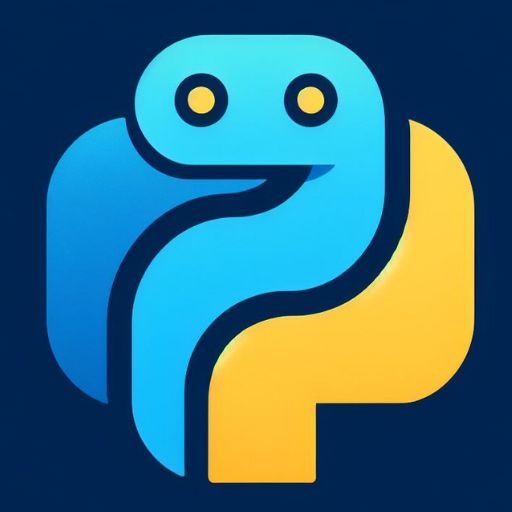
Learning Python is an exciting journey, and one of the best ways to solidify your skills is by working on hands-on projects. Whether you're a coding novice or looking to enhance your programming prowess, undertaking simple Python projects can be both educational and enjoyable. In this blog post, we'll explore the top 10 easy Python projects for beginners that will help you reinforce your understanding of Python concepts and build a strong foundation for future programming endeavors.
1. Number Guessing Game:
Practice Source:- You can start practicing the Number Guessing Game on platforms like Replit or Jupyter Notebooks.
- Explore tutorials and examples on websites like GeeksforGeeks and Real Python.
This project is a great introduction to basic Python concepts. You'll use random number generation, user input, and conditional statements. The computer generates a random number, and the player must guess it. You can implement features like hints or limited attempts to make it more engaging.
2. To-Do List Application:
Practice Source:- Try implementing the To-Do List Application on your local Python environment or platforms like GitHub.
- Look for tutorials on websites like W3Schools and Codecademy.
Building a to-do list app is an excellent way to understand fundamental data structures. You'll work with lists to manage tasks and practice user input handling. Implement functionalities like adding tasks, marking them as completed, and removing them to reinforce your understanding of list manipulation.
3. Calculator:
Practice Source:- Create the Calculator project using online platforms such as CodePen or GitHub.
- Explore Python tutorials on websites like SoloLearn and Hackerrank.
Developing a basic calculator helps reinforce your knowledge of arithmetic operations and user interaction. You'll implement addition, subtraction, multiplication, and division functionalities. This project is an excellent opportunity to practice writing functions and handling user input for mathematical operations.
4. Web Scraper:
Practice Source:- Practice web scraping on websites that allow it, using tools like Beautiful Soup and Requests.
- Follow tutorials on platforms like DataCamp and Scrapy.
Creating a web scraper introduces you to the world of web data extraction. Start with a simple project, like fetching and displaying headlines from a news website. This project will introduce you to HTML structure, HTTP requests, and parsing libraries like BeautifulSoup. It is a stepping stone to more advanced web scraping tasks.
5. Weather App:
Practice Source:- Use APIs like OpenWeatherMap to fetch weather data.
- Explore tutorials on platforms like freeCodeCamp and Stack Overflow for API integration.
Build a weather application that fetches weather information using an API. This project exposes you to working with external APIs, handling JSON data, and presenting information to users. You'll learn about making HTTP requests and processing JSON responses to display weather details.
6. Hangman Game:
Practice Source:- Implement the Hangman Game using platforms like Replit and GitHub.
- Explore tutorials on websites like CodeCombat and Edabit.
Implementing the classic Hangman game reinforces your understanding of strings, loops, and conditional statements. Users guess a word letter by letter, and you'll need to manage the game state, track guessed letters, and handle user input. This project enhances your skills in string manipulation and control flow.
7. Dice Rolling Simulator:
Practice Source:- Create the Dice Rolling Simulator using platforms like Jupyter Notebooks and GitHub.
- Explore tutorials on websites like Programiz and Kaggle.
Create a simple dice-rolling simulator to emulate the randomness of rolling a die. This project involves random number generation and basic user interaction. You'll practice incorporating randomness into your programs and handling user input to simulate the experience of rolling a physical die.
8. Password Generator:
Practice Source:- Implement the Password Generator on platforms like CodePen or GitHub.
- Explore tutorials on websites like Real Python and Tutorialspoint.
Develop a password generator to create strong and secure passwords based on user specifications. This project involves string manipulation and randomization. You'll learn about the importance of password security and implement a tool that can generate complex passwords for different purposes.
9. Basic Chatbot:
Practice Source:- Develop the Basic Chatbot using platforms like Replit and GitHub.
- Explore tutorials on websites like Towards Data Science and Chatbot Tutorial.
Building a basic chatbot introduces you to natural language processing (NLP) fundamentals. You'll create a program that can engage in simple conversations with users. This project involves string matching, user input analysis, and conditional responses. While basic, it lays the groundwork for more advanced chatbot development.
10. Alarm Clock:
Practice Source:- Create the Alarm Clock project on platforms like Jupyter Notebooks or GitHub.
- Explore tutorials on websites like Real Python and Programiz.
Developing a basic alarm clock application familiarizes you with date and time functions in Python. You'll learn how to work with time, set alarms, and notify users. This project is a practical application of handling time-related tasks in programming.
Conclusion:
Embarking on these projects will not only reinforce your Python skills but also provide a solid foundation for more complex programming tasks. Remember to explore additional functionalities, customize the projects to your liking, and, most importantly, enjoy the learning process! Happy coding!





0 Comments